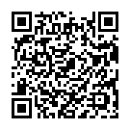-
- 加 LINE 客服
- ID: @editage

來電提醒:意得輯來電顯示為國際電話 +1 (669) 272-1214,此為台灣客服致電,請加入聯絡人安心接聽。
要相信你邁出的每一步都是正確的
作者 Don Samulack博士 | 2014年08月22日
 我相信有一種叫『編輯(editing)』的基因!
我相信有一種叫『編輯(editing)』的基因!
好了,現在我成功引起你的注意了。我承認與其說是『基因』,它更是一種天生的識別能力。因為我總是無意中就能一眼看到英語中的違規詞句、結構甚至圖像,而且一直是如此,簡直就像是一種詛咒!所以再自然不過的,我選擇走進了編輯和發表產業。
我的背景相當多樣化,雖然我能回顧過往的職業目標,但看不見未來。是一連串的偶然造就了今天的我:我一直很喜歡生物學和形式與功能的原則,因為這個興趣促使我在獲得環境生理學生物學學位後又取得了麥吉爾大學醫學生理學博士學位(是的,我來自加拿大),我和一些外科醫生組成的小團隊做了第一個靈長動物皮膚和手部移植手術。經過多年博士後研究,我的創業個性顯露出來了,再也無法忍受實驗室環境的限制,但對學術環境的嚮往仍存在我的血液中。最終我進入業務發展領域,進行市場研究和推銷支持製藥公司的方案。
之後,生命的另一個轉折讓我來到了美國為 St. Jude 兒童研究醫院擔任科學編輯部的領導,在46歲那年服務於 St. Jude 時,我才重新回想起我長大後想做什麼:我想幫助學者發表,我想指導並輔導研究人員使用全球通用的策略來成功發展他們的研究發表生涯。我看到了這個需求,甚至看到了科研發表移往開放獲取(Open Access)的早期跡象,我還看到了亞洲研究人員在英文西方期刊上發表研究成果的需求,同時也看到了我所能貢獻的範圍。
有了明確的願景,我主動找了一位亞洲合作夥伴,是一家符合我的價值觀、品質期望和專業性的學術編修公司。在此期間,我出席了 2007 年在亞特蘭大喬治亞州舉辦的美國醫學作家協會會議,在這個場合中遇見了 Cactus 傳媒旗下意得輯(Editage)品牌的代表。之後的短短幾個月,我打開了 Cactus 的北美市場,在費城附近設立辦公室。那之後,Cactus逐漸壯大,如今在台灣、日本、韓國、中國、巴西、德國和印度都有據點,並與全球一些頂尖出版商、期刊、學會、製藥公司和學術機構建立合作關係。
六年後的現在,回過頭來看,除體內的『編輯基因』讓我極為注重細節和自身感受到的助人欲望以外,在我的職涯中並不是由單一事件造就成今天的我。
如今除了處理大量的郵件外,我不常寫作和進行學術編輯,但我已能妥善將時間平均分配在監督企業和領導思想發展上。最近,我多次在北美、亞洲和拉丁美洲出差,代表意得輯擔任講座和研討會的講師,講授關於論文寫作、編輯、科研誠信、發表道德、良好發表實踐和成功發表策略等主題。我終於找到了我的特有專長。先是學術界,再是作家,然後是編輯,現在是充滿熱情的講師,在這條路上的每一個迂迴都成就了今天的我、我的聲望價值和我所能分享的經驗。如果可以倒轉時間,我多希望當初的我能用以如今擁有的知識與能力重新來過!
Every step is a step in the right direction
By Dr. Don Samulack | April 15, 2014
 I’m convinced that there is an “editing” gene!
I’m convinced that there is an “editing” gene!
Well, now that I have your attention, I confess that it may not be so much a “gene” as it is an innate pattern recognition. I feel cursed, like many, in that irregularities in the wording or structure of the English language—or even images—jump off the page at me. It has always been that way! This, through natural selection more than anything, directed me toward the editing and publishing industry.
I have a varied background, and while I can see career purpose in hindsight, it certainly was not apparent in foresight. It was a series of serendipitous circumstances that led me to where I am today. I’ve always been fascinated with biology and the guiding principles of form and function. This passion led me to push myself beyond a biology degree in environmental physiology toward a PhD in medical physiology at McGill University (yep, I’m originally Canadian, and not one “Eh!” yet). I’m credited, along with a small team of surgeons, with the first primate skin and hand transplants. After several years of postdoctoral study, my entrepreneurial side revealed itself and I could no longer tolerate the restrictions of the laboratory environment; still, the academic environment remains in my blood. I ended up in business development, conducting market research and marketing initiatives supporting pharmaceutical companies.
 Then, in another turn of fate, St. Jude Children’s Research Hospital brought me to the United States to head their Department of Scientific Editing. It was while I was working at St. Jude, at roughly 46 years of age, that I realized what I wanted to be when I grew up. I wanted to help scholars get published. I wanted to guide and oversee global strategies that would be effective in coaching researchers how to succeed in their publishing careers. I saw the need. I saw the early signs of the change toward Open Access publishing. I saw the quickly growing need of Asian researchers to publish in English-language Western journals, and I saw how I could personally make a significant difference.
Then, in another turn of fate, St. Jude Children’s Research Hospital brought me to the United States to head their Department of Scientific Editing. It was while I was working at St. Jude, at roughly 46 years of age, that I realized what I wanted to be when I grew up. I wanted to help scholars get published. I wanted to guide and oversee global strategies that would be effective in coaching researchers how to succeed in their publishing careers. I saw the need. I saw the early signs of the change toward Open Access publishing. I saw the quickly growing need of Asian researchers to publish in English-language Western journals, and I saw how I could personally make a significant difference.
With this clear vision, I actively sought out an Asian partner that was an established scholarly editing company and that met my values and expectations of quality and professionalism. During this quest, I met representatives of Editage, a division of Cactus Communications, while attending a meeting of the American Medical Writers Association in Atlanta, Georgia, in 2007. Within months, I took steps to open the North American operations of the company, and eventually established an office near Philadelphia. Since then, the company has grown, and now has offices in Japan, South Korea, India, and China, as well as corporate relationships with some of the most significant publishers, journals, societies, pharmaceutical companies, and academic institutions around the world.
Six years later, I look back and say that there was no single aspect of my career that brought me to where I am today, other than my relentless attention to detail (that “editing gene” thing), and my genuine desire to help others (something that I learned about myself along the way).
Today, while I am no longer entrenched in the writing and editing of scholarly works (except for a lot of email), I find myself balancing my time between corporate oversight and thought leadership. Lately, I’ve been spending a significant amount of time traveling throughout North America, Asia, and Latin America, representing Editage, conducting seminars and workshops on writing, editing,research integrity, ethics, good publication practices, and successful publication strategies. I’ve finally found my niche; academia first, then writer, then editor, and now passionate teacher. Every step along the circuitous path that I took played a significant role in contributing to who I am today, to the credibility and value I bring to the table, and to the experience that I am able to articulate.
I wish that I could start all over with what I know today! Who wouldn’t? Imagine if I could bend time… just imagine!
TAGS: academic writing, editing, Scholarly communication, career
意得輯專為研究學者及各類學術單位提供英文編修以及期刊發表協助服務,我們在台灣、日本、美國、韓國、中國上海、新加坡和印度均設有辦事處,擁有世界上規模最大的編修團隊,為提供專業語言協助服務公司中的領導權威。